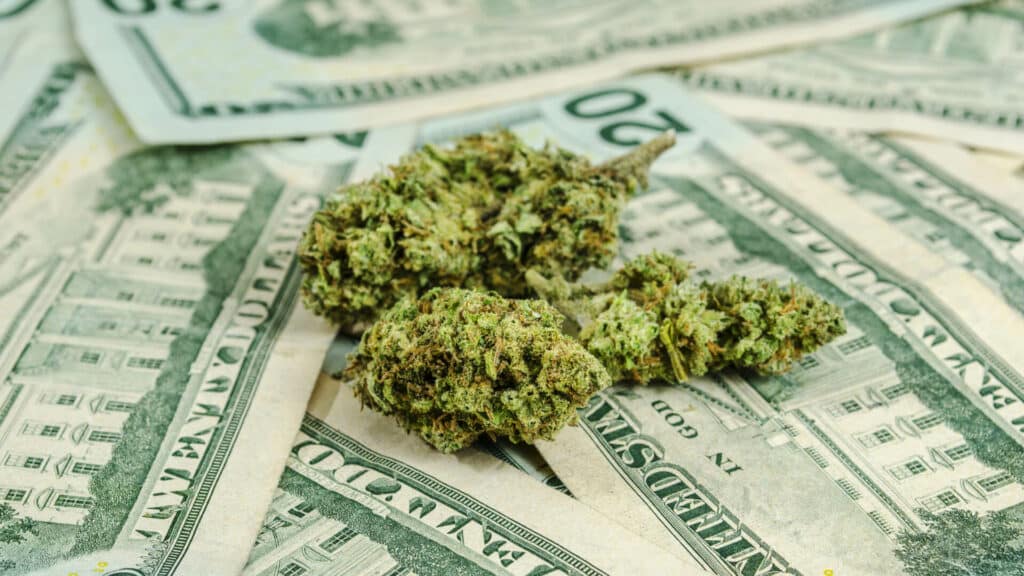 Rolling Stone Magazine Lists Next 7 States to Legalize Marijuana
Rolling Stone Magazine Lists Next 7 States to Legalize Marijuana
Tim Dickinson just penned “The Next Seven States To Legalize Pot” for Rolling Stone and the piece, not surprisingly, has Oregon and California at the top of the list. The Beaver and Sunshine States do seem poised to join Colorado and Washington in ending cannabis prohibition as both of the West Coast states have medical cannabis on the books, have already decriminalized personal amounts of marijuana and have recently placed legalization on the ballot. California’s Prop 19 garnered 46.5% of the vote in 2010 while Oregon’s Measure 80 received 46.8% of the vote in 2012.
Oregon’s segment in Tim Dickinson’s article:
1) Oregon
Oregon could have produced a trifecta for pot legalization on election day. Like Washington and Colorado, the state had a marijuana legalization bid on the ballot in 2012, but it failed 54-46. The pro-cannabis cause was dogged by poor organization: Advocates barely qualified the initiative for the ballot, and could not attract billionaire backers like George Soros and Peter Lewis, who helped bankroll the legalization bit in Washington.But given that Oregon’s biggest city, Portland, will be just across the Columbia River from prevalent, legal marijuana, the state legislature will be under pressure to create a framework for the drug’s legal use in Oregon – in particular if the revenue provisions of Washington’s law are permitted to kick in and lawmakers begin to watch Washington profit from the “sin taxes” on Oregon potheads. If lawmakers stall, state voters will likely have the last word soon enough. Consider that even cannabis-crazy Colorado failed in its first legalization bid back in 2006.
“We have decades of evidence that says prohibition does not work and it’s counterproductive,” said Peter Buckley, co-chair of the Oregon state legislature’s budget committee. For Buckley, it’s a matter of dollars and common sense: “There’s a source of revenue that’s reasonable that is rational that is the right policy choice for our state,” he said. “We are going to get there on legalization.”
Oregon is then followed by California, Nevada, Rhode Island, Maine, Alaska and Vermont. All of the 7 states have legalized medical cannabis and only Rhode Island hasn’t decriminalized personal amounts for all adults. In Rhode Island, up to 35 grams is still a misdemeanor offense, subjecting citizens with a $500 fine and up to a year in jail. Alaska, under its state constitution, allows for personal cultivation of up to 25 plants and possession of up to 4 ounces in the privacy of one’s own home, but it is still illegal to transport or deliver marijuana for non-medical purposes. Neither Rhode Island or Vermont have the citizen initiative process, so any legalization measure will have to come from the legislature and be signed by the governor. Nevada has already voted on legalization twice, with support peaking at 44% in 2006. All of these states have many factors going for them, and any and all of them could certainly be the next states to legalize cannabis.
While I can’t argue with the 7 states listed, I do think that one state, Massachusetts should certainly be on the list, possibly as high as third. The Bay State has both decriminalized personal amounts of cannabis as well as legalized it for medical purposes. In fact, medical marijuana legalization passed in 2012, with 63% of the vote, 2 percentage points higher than President Obama’s re-election garnered in the deep blue state, despite the best efforts of the opposition led by Kevin Sabet, former Senior Advisor for Policy to the White House Office of National Drug Control Policy. Massachusetts also has the initiative process, giving it a leg up over both Vermont and Rhode Island as the people are far ahead of the politicians on this issue, even in relatively marijuana-friendly states as too many legislators are still worried about the stigma attached to marijuana as they contemplate running for higher office. Hopefully, politicians will continue to get more bold on the issue as they realize that favoring sensible cannabis laws can actually help their political career.
Somewhat of a “dark horse” is Missouri. I may be biased on the issue as Missouri is my birth state, but the Show-Me State has several factors in its favor. The successful decriminalization campaign in Columbia (the state’s 5th largest city) and the ongoing decriminalization effort in Springfield (the state’s 3rd most populous city) have helped train grassroots activists in two important college towns. Decriminalization measures in the two most populous cities, St. Louis and Kansas City, may not be too far behind. A mostly volunteer signature gathering effort to place legalization on the state ballot in 2012 resulted in over 70,000 signatures, a huge accomplishment when a vast majority of the petition circulators are unpaid. The state-wide activist group, Show-Me Cannabis,(full disclosure: I am on their Board of Directors) has brought together great activists from across the state and is actively laying the foundation for both local decrim efforts as well as another potential state-wide run. While the “flyover” states often get forgotten in our political and cultural discourse, Missouri is certainly a state to keep our eye on.
While it isn’t technically a state, Washington, D.C., may just be primed to end cannabis prohibition in our nation’s capitol. Medical marijuana was legalized in 1998 and the D.C. residents had a long, hard road finally seeing the medical law implemented as they had to overcome congressional meddling. While the fact that Congress can override the will of D.C. voters may prevent some activists and funders from wanting to put time, money and effort into a legalization campaign, I think that such a fight with the federal government is exactly the type of fight that does the cannabis law reform movement good. It puts us in a favorable political position as a very strong majority of voters want the feds to allow localities to implement their own marijuana laws, our country was founded when citizens revolted against “taxation without representation” and the media attention that would be generated by DC citizens voting to legalize cannabis would only help continue the public education of American voters regarding marijuana laws.
While it is unclear exactly which state will be joining Washington and Colorado in finally ending the failed and harmful policy of cannabis prohibition, it is clear that momentum is on the side of implementing sensible cannabis laws as public support for marijuana legalization is higher than ever before. Not only do we have public support, but we have real political victories under our belt. These victories provide a blueprint for other states to follow. Understandably, it may be disconcerting for members of the cannabis community residing in states that didn’t make this list or that seem many, many years away, but please know that you can still help the cause by donating your time and money to this important civil rights battle. I have no doubt that we will continue to end cannabis prohibition state by state, until the cannabis community is free from sea to shining sea.
Article originally appeared on National Cannabis Coalition and republished with special permission





